He would cringe at hearing the word applied to him, but George Dolan was—plug your ears, George—an institution.
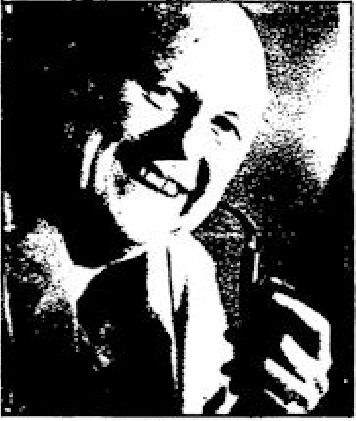 In a profession with a high turnover rate, he was a columnist for the Star-Telegram for thirty-one years. And even more impressive, for most of those years he wrote a column every day the sun came up.
In a profession with a high turnover rate, he was a columnist for the Star-Telegram for thirty-one years. And even more impressive, for most of those years he wrote a column every day the sun came up.
But columnists are made, not born, and Dolan worked as a newsroom editor and journeyman reporter for almost twenty years before becoming that word that would make him cringe.
George Bernard Dolan was born in Temple in 1923. He began working at the Temple Daily Telegram in 1939 at age sixteen.
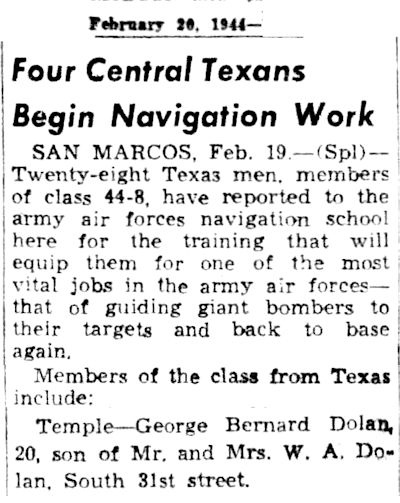 By the time he joined the Army and became a B-17 navigator in 1944, he had attained the rank of city editor. After the war he returned to the Daily Telegram.
By the time he joined the Army and became a B-17 navigator in 1944, he had attained the rank of city editor. After the war he returned to the Daily Telegram.
In 1948 he moved to the big city, joining the staff of the Star-Telegram as a general assignments reporter.
 The creed of a general assignments reporter is “have notepad, will travel.” In his early days Dolan, like C. L. Richhart and future entertainment columnist Elston Brooks, covered everything from the stock show and rodeo (an assignment no Star-Telegram writer could dodge) to political speeches to Fort Worth’s gangland crime of the 1950s.
The creed of a general assignments reporter is “have notepad, will travel.” In his early days Dolan, like C. L. Richhart and future entertainment columnist Elston Brooks, covered everything from the stock show and rodeo (an assignment no Star-Telegram writer could dodge) to political speeches to Fort Worth’s gangland crime of the 1950s.
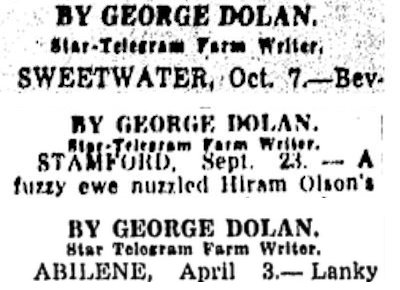 Back when the Star-Telegram devoted entire pages to farm and ranch news, Dolan even put on his Mr. Green Jeans hat and wrote farm news.
Back when the Star-Telegram devoted entire pages to farm and ranch news, Dolan even put on his Mr. Green Jeans hat and wrote farm news.
Dolan came to the Star-Telegram during the final decade of Amon Carter’s leadership. In the Texas newspaper wars, Carter early on had ceded east Texas to the Morning News and Times Herald. The Star-Telegram’s domain, Carter decreed, would be the enormity of west Texas, every farmer and rancher, every pumpjack and jackrabbit of it. After all, Fort Worth was “where the West begins.”
(At one time the early edition of the Star-Telegram was delivered daily as far west as Roswell, New Mexico!)
Fort Worth was the biggest city within driving distance of west Texas. West Texans drove to Fort Worth to shop at Leonard’s and Everybody’s and Montgomery Ward.
West Texans got their news from the Star-Telegram—even their local news. The newspaper hired dozens of “stringers” in small towns to the west—Rising Star, Dublin, De Leon—to phone in local news for the state editions.
The newspaper also blanketed west Texas with staff writers.
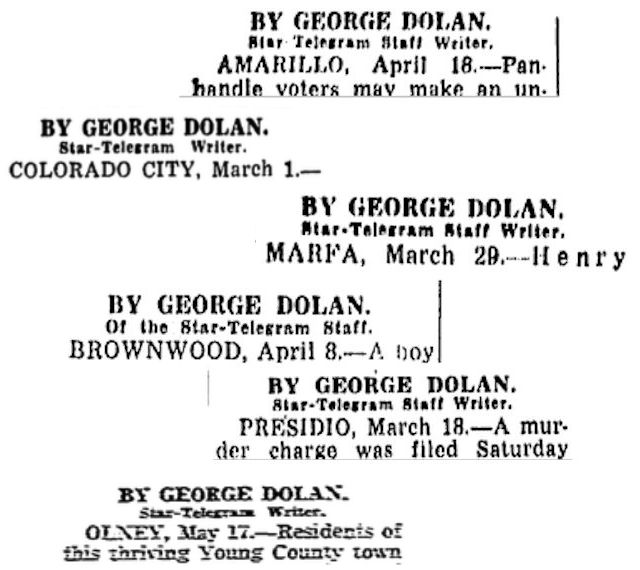 One of them was George Dolan.
One of them was George Dolan.
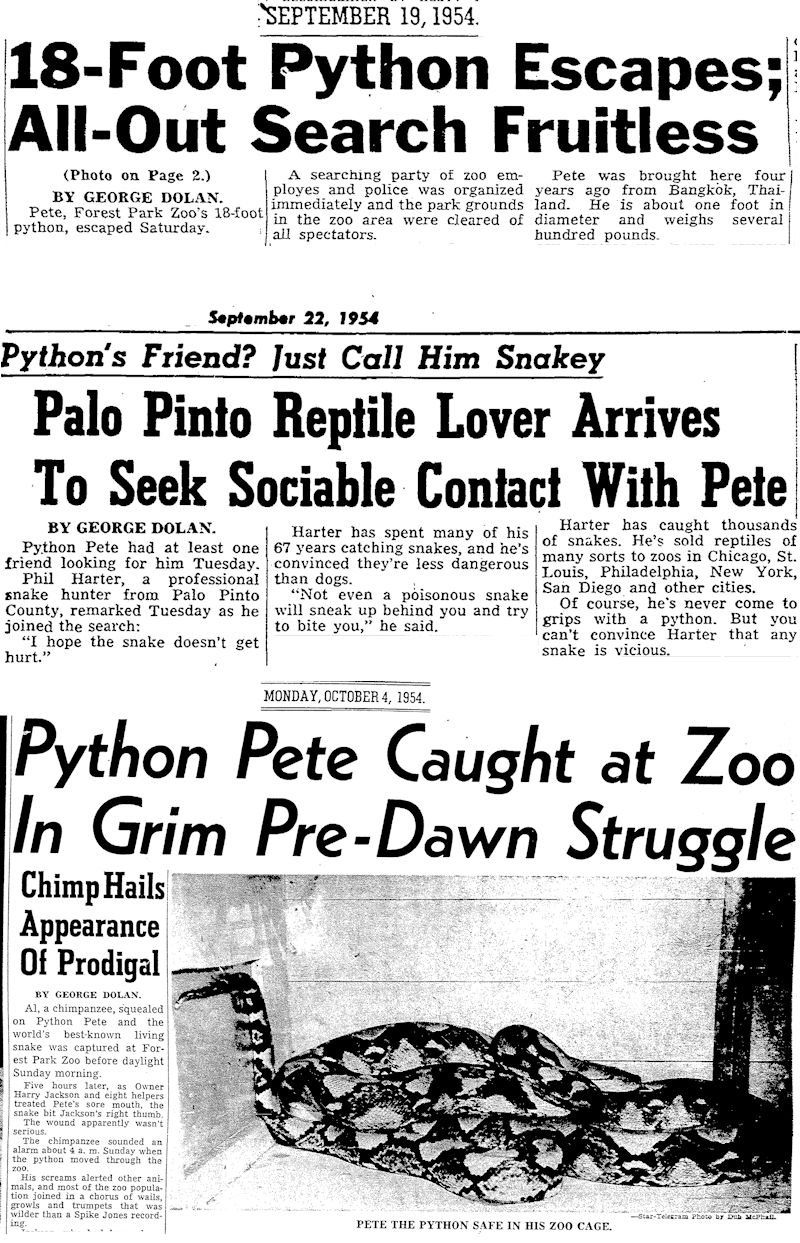 Dolan also covered the zoo, including the escape of Pete the python in 1954.
Dolan also covered the zoo, including the escape of Pete the python in 1954.
(Later rumors would circulate that Pete’s great escape was, in fact, a hoax, a publicity stunt perpetrated by herpetologist Harry Jackson, abetted by Dolan. When Dolan was questioned about this rumor, his response was worthy of Alice in Wonderland: He would puff on his pipe like the Caterpillar on his hookah, smile like the Cheshire Cat, and say nothing.)
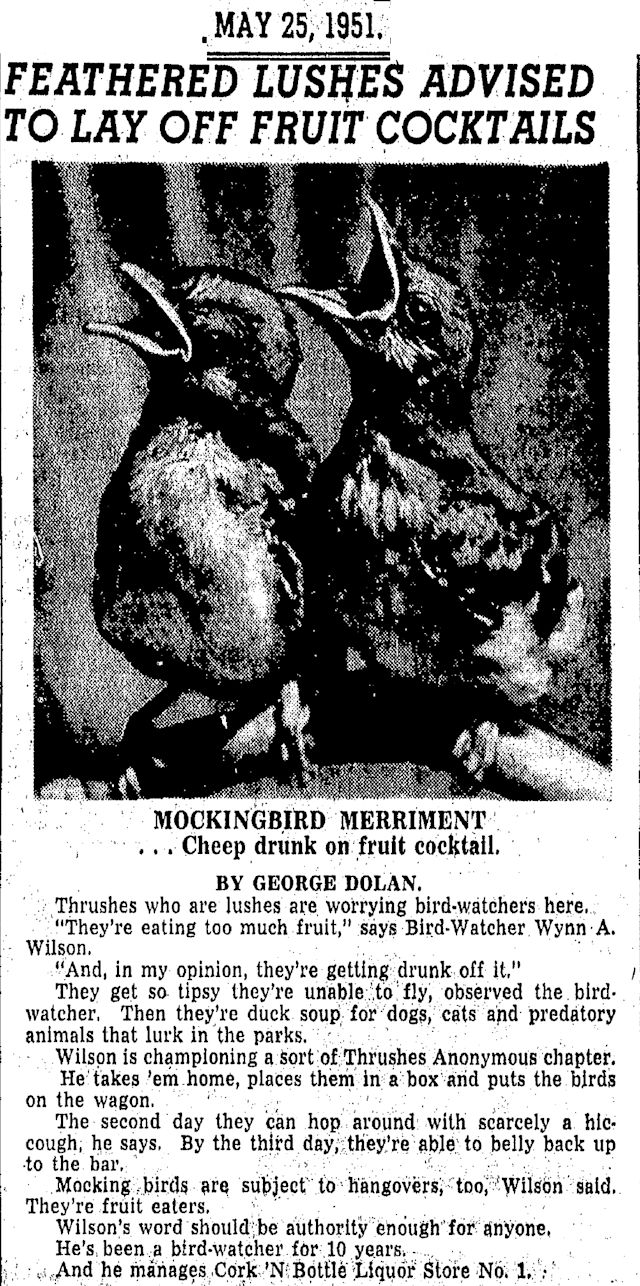
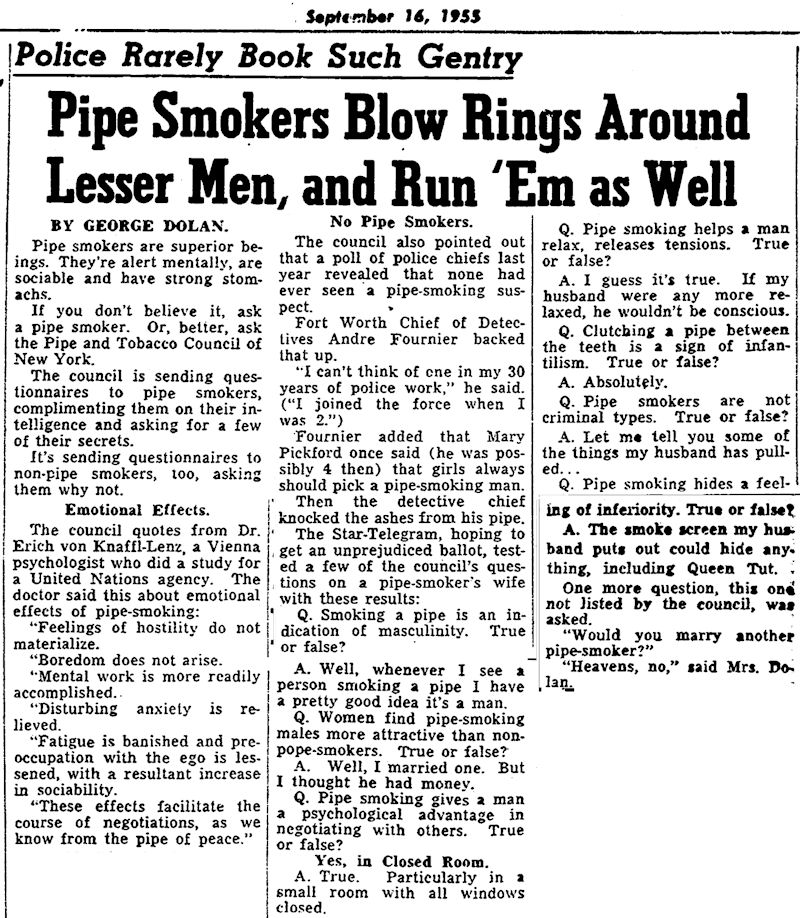 Once in a while amid all the serious news, Dolan’s sense of humor was showcased.
Once in a while amid all the serious news, Dolan’s sense of humor was showcased.
(In the pipe article, Queen Tut was an elephant at Fort Worth’s zoo.)
But in 1956 Dolan and his pipe returned to the Temple newspaper to serve as managing editor.
 However, a year later the Star-Telegram lured him back by offering him his own column. George Dolan would become the face of the Star-Telegram to west Texas.
However, a year later the Star-Telegram lured him back by offering him his own column. George Dolan would become the face of the Star-Telegram to west Texas.
 Writers evolve. Dolan’s first column bears little resemblance to his later columns. His first column was about west Texas, yes, but he did not identify the people he observed on Tavern Trail. In later years the classic Dolan column would be built around identified people. Dolan would develop a network of sources who supplied him with anecdotes and bon mots: Dallas Probst, Ace Reid, Hondo Crouch, Don Newbury.
Writers evolve. Dolan’s first column bears little resemblance to his later columns. His first column was about west Texas, yes, but he did not identify the people he observed on Tavern Trail. In later years the classic Dolan column would be built around identified people. Dolan would develop a network of sources who supplied him with anecdotes and bon mots: Dallas Probst, Ace Reid, Hondo Crouch, Don Newbury.
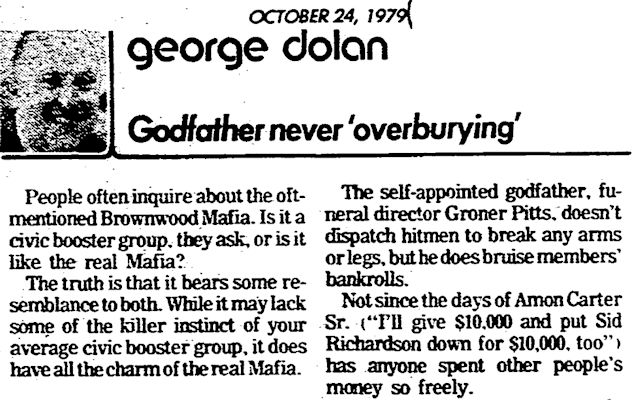 And Groner Pitts, the undertaker with the doubly apt name. Pitts was godfather of the Brownwood Mafia, a merry band of civic boosters who often provided material for Dolan columns.
And Groner Pitts, the undertaker with the doubly apt name. Pitts was godfather of the Brownwood Mafia, a merry band of civic boosters who often provided material for Dolan columns.
 And, of course, even when Dolan didn’t name names, we knew who he was talking about. Three people who appeared frequently in Dolan’s columns were “a West Side man,” “a West Side housewife,” and a man (“call him Barney”). Readers soon figured out that the two West Siders were Dolan and wife Melba and that Barney also was George Bernard Dolan.
And, of course, even when Dolan didn’t name names, we knew who he was talking about. Three people who appeared frequently in Dolan’s columns were “a West Side man,” “a West Side housewife,” and a man (“call him Barney”). Readers soon figured out that the two West Siders were Dolan and wife Melba and that Barney also was George Bernard Dolan.
By 1970 Amon Carter had been dead fifteen years, and the newspaper’s identification with west Texas had weakened. That year the name of the column changed to simply “George Dolan.” Now Dolan was the face of the Star-Telegram to all of Texas.
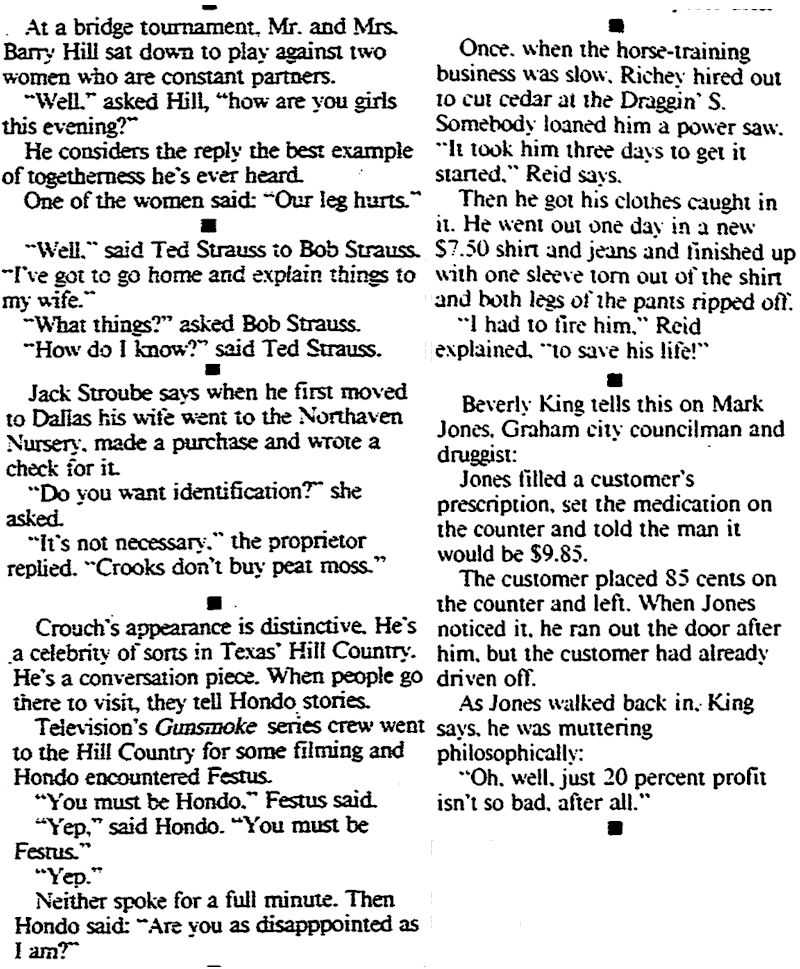
Here are some excerpts from Dolan columns.
 On August 19, 1988, thirty-one years after Dolan wrote about those nameless people on Tavern Trail in west Texas, this column appeared.
On August 19, 1988, thirty-one years after Dolan wrote about those nameless people on Tavern Trail in west Texas, this column appeared.
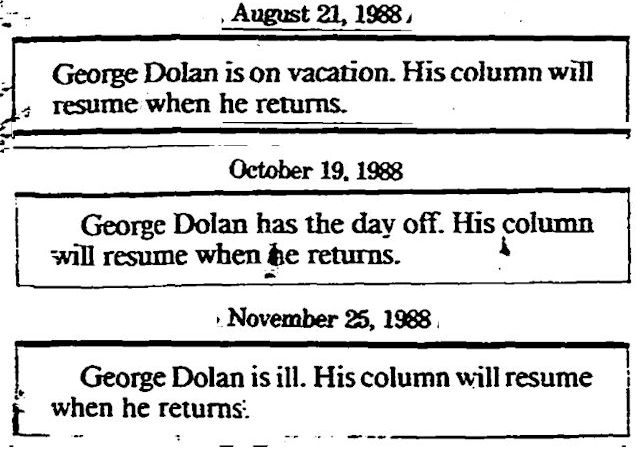 After August 19 Dolan’s column did not appear. Instead the newspaper ran a series of boxes that progressed from innocuous to disturbing.
After August 19 Dolan’s column did not appear. Instead the newspaper ran a series of boxes that progressed from innocuous to disturbing.
And finally:
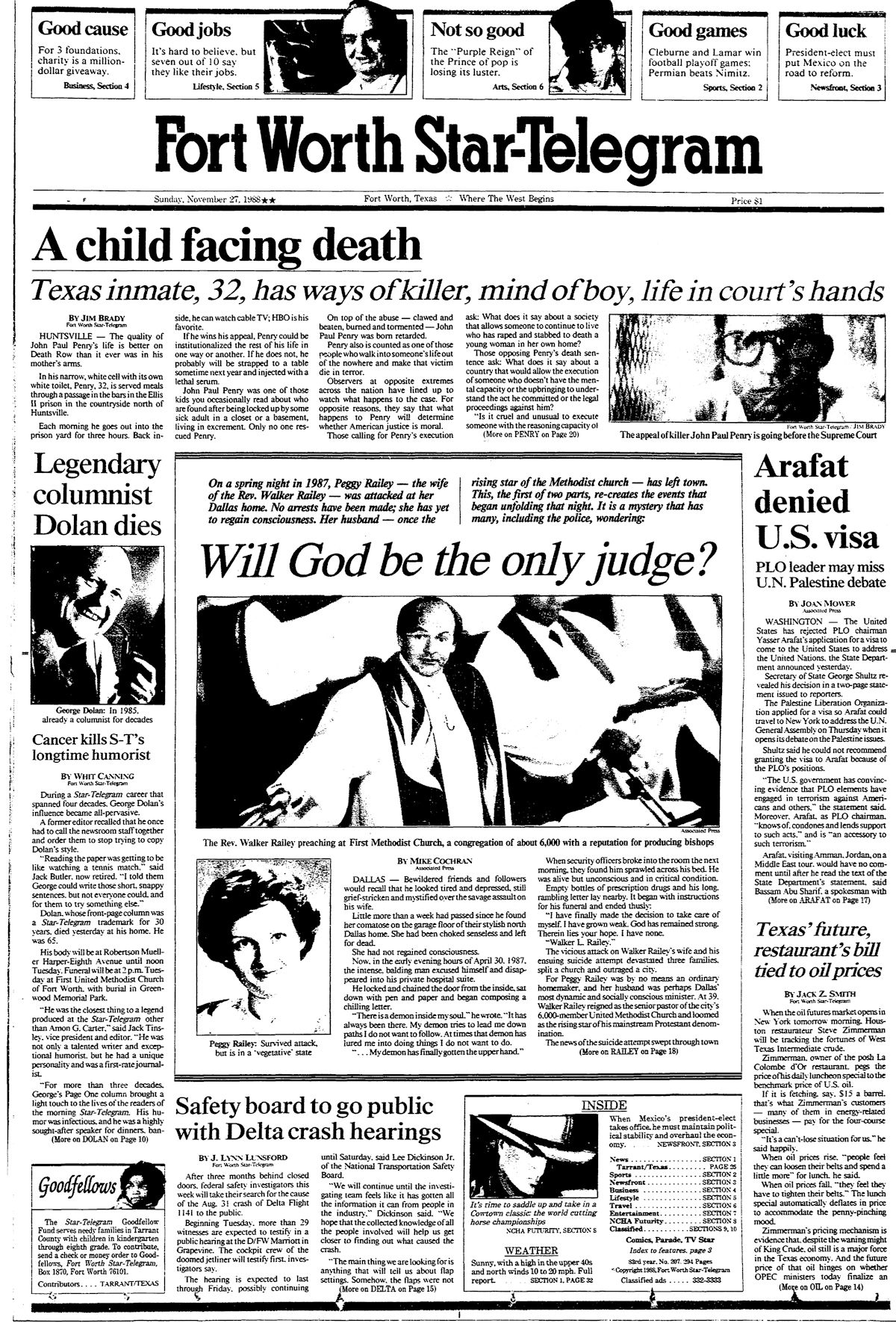 For thirty-one years George Dolan had been the first thing in the paper that many people read. On November 27 they read this.
For thirty-one years George Dolan had been the first thing in the paper that many people read. On November 27 they read this.
Readers from Big Spring to Littlefield, from Fort Worth to Fort Stockton began to mourn and to remember.
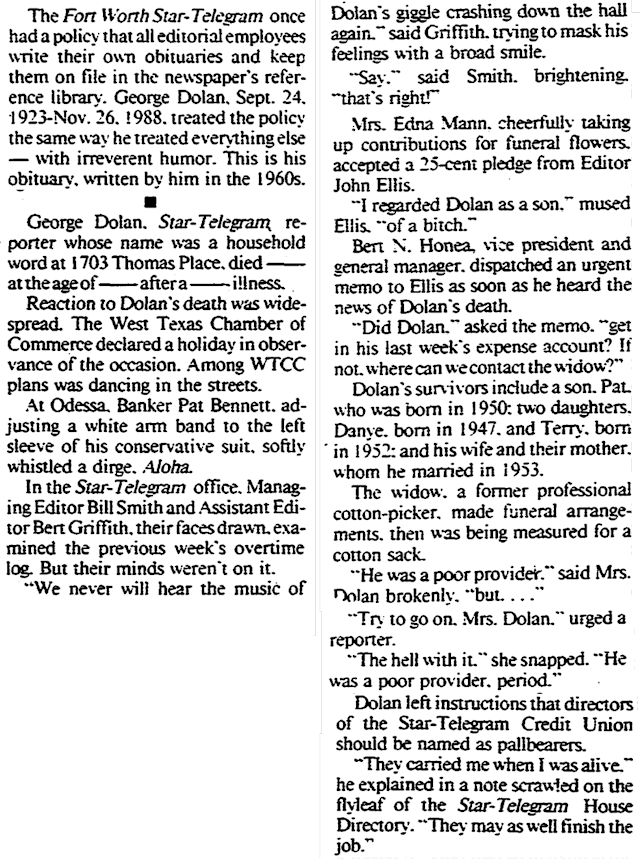 Dolan found humor in everything, even the prospect of his own death.
Dolan found humor in everything, even the prospect of his own death.
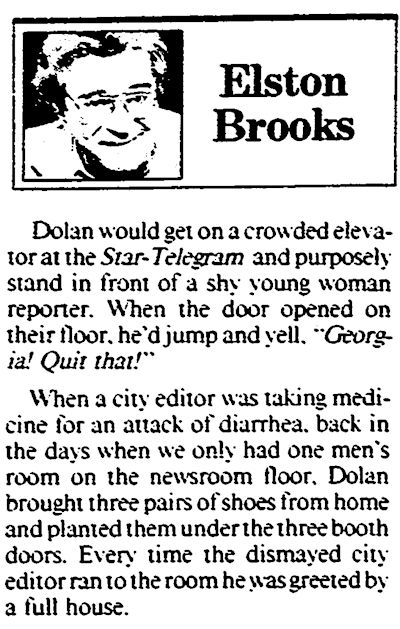 Dolan was remembered as a practical joker. Like Dolan, Elston Brooks began working at the Star-Telegram in 1948.
Dolan was remembered as a practical joker. Like Dolan, Elston Brooks began working at the Star-Telegram in 1948.
Dolan was famous for his giggle, once described as “hysteria in E flat.”
Public relations executive Jerre Todd recalled: “One of the funny stories I remember about George is that when he was a young reporter they had to take him off obit writing because every time he talked to someone, he laughed. He would be talking to the bereaved family, and this nervous laugh would come out.”
Dolan was praised by his colleagues. Jack Tinsley, vice president and editor, said, “He was the closest thing to a legend produced at the Star-Telegram other than Amon G. Carter. He was not only a talented writer and exceptional humorist but he had a unique personality and was a first-rate journalist.”
Dolan also was honored with a scholarship in his name at TCU and in a resolution by the Texas House of Representatives.
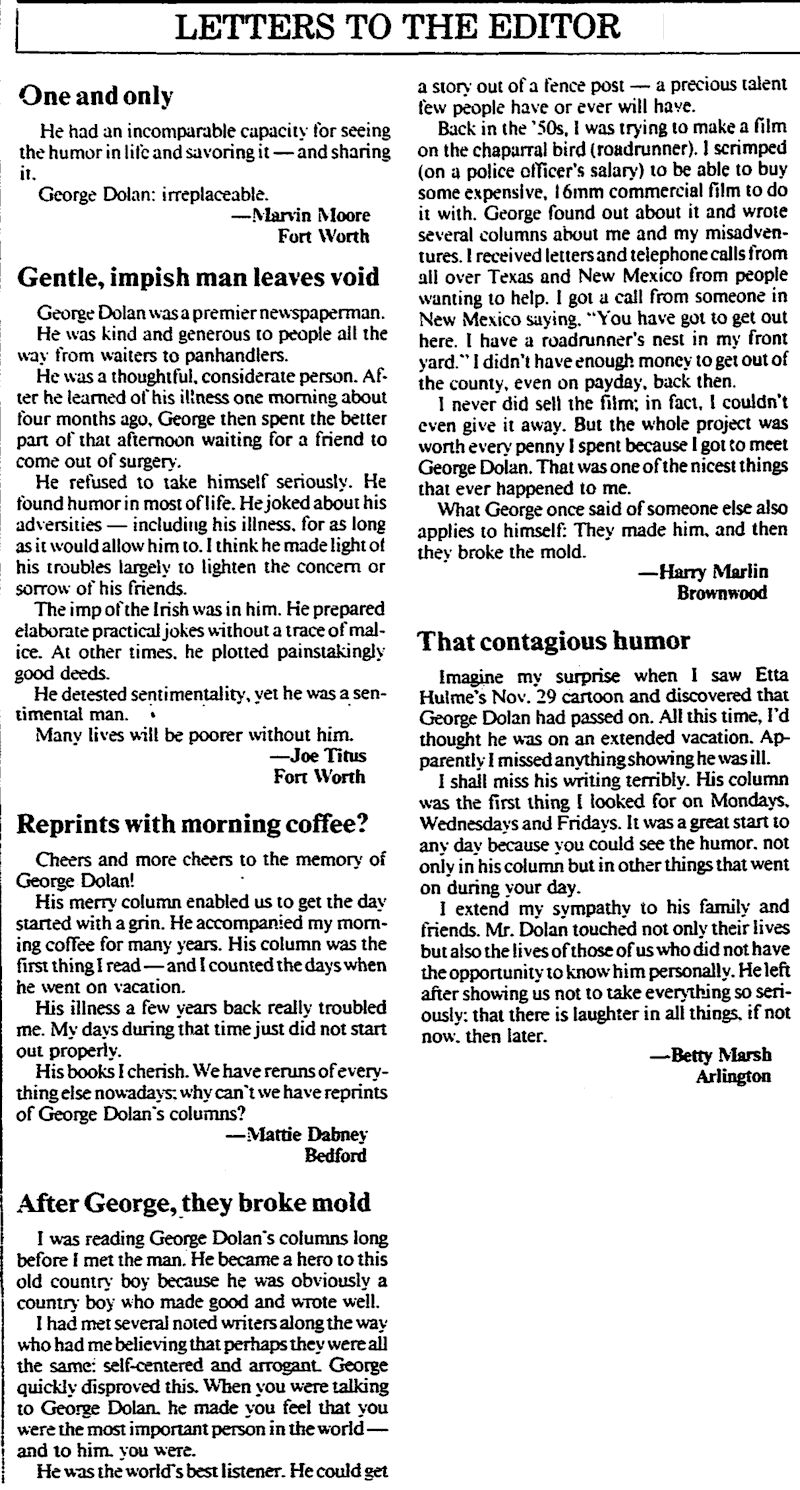 But it was the praise of his readers that would have meant the most to Dolan. These letters to the editor are describing—plug your ears, George—an institution.
But it was the praise of his readers that would have meant the most to Dolan. These letters to the editor are describing—plug your ears, George—an institution.
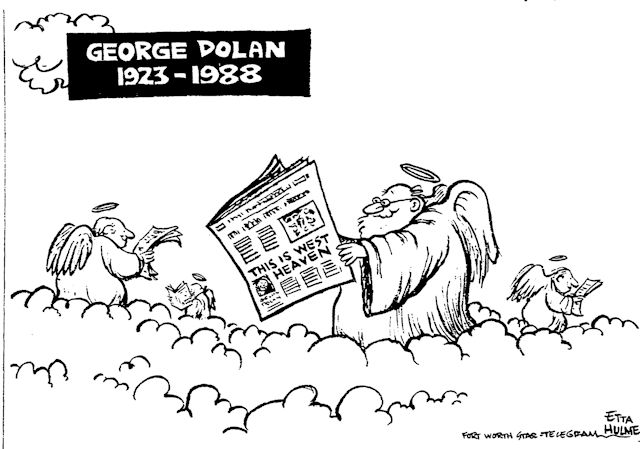
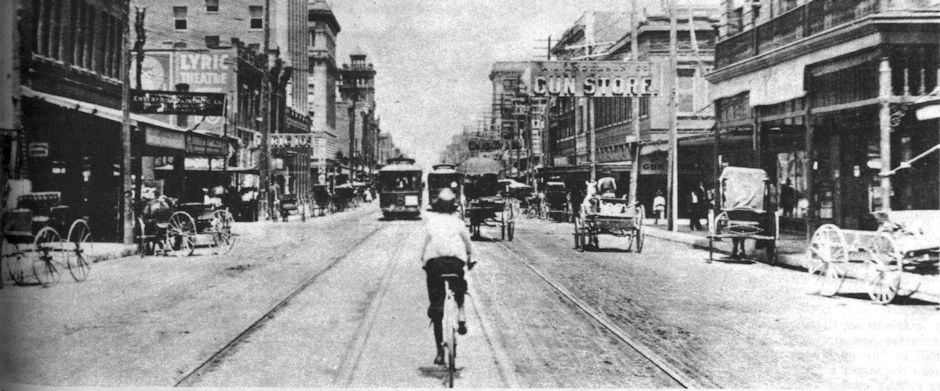





Great column! I’m Fort Worth born and bred and grew up reading George Dolan’s column.
FYI, Fort Worth is “where the West begins,” but West Texas culture is different-at least among West Texas Native Anglos who are clannish and unfriendly.
Thanks, Lisa.
Mike, thanks for the great memories!
Thanks, Doug.
It was fun reading Dolan again. Such a fine and witty writer, all of it original.
Thanks, Jimmy.
FW Legal Secretaries association had a bosses banquet every year. The year I was program chairman I coaxed George Dolan to be our speaker, because everyone loved his columns. The night of the banquet, I discovered what a shy man he was, and that he was much better writing humor than speaking humor before a crowd, he was so nervous, but such a nice person! Maybe it was speaking before all those lawyers and judges?
Great stuff, Mike.
Hey, Tom! Many thanks.
Delightful, Mike!
Thank you, Mark.